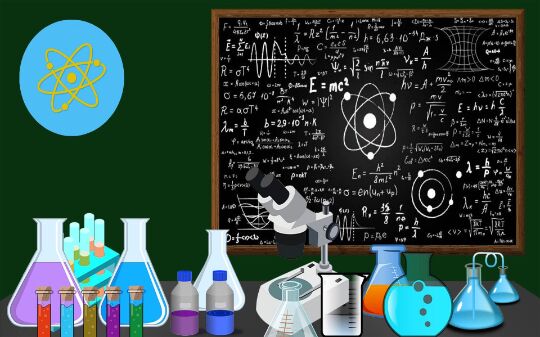With heart and craft
With qualities like passion and politeness, and techniques like story-telling and demonstration, science teachers can improve students’ learning experiences

My experience of carrying out a variety of activities at the Central Pollution Control Board and holding frequent interactions with trainee from environment laboratories and students at school level has made me obsessed with four things — teaching science, doing science demonstrations, assessing chemical behaviour of pollutants in environment, and certain hobbies like vermin-composting, utilisation of water hyacinth for handicrafts, gardening, organic farming and aquaponics. I once met Samar Bagchi, ex-director of BITM, Kolkata, at a science teaching seminar about four years ago and learned that we shared passions for the above four things. Being encouraged by him, I have written many articles on this topic in newspapers and magazines.
The most important thing that I have realised as a teacher is that I must be passionate and polite and share the feeling of my joy with students to make them interested in listening to what I have to say. I always put my best efforts to maintain politeness during my lectures. Generally, classes function with a 'designated' set of students who ask most of the questions. I tell these students that they are secretly admired by the rest of the class. Questions keep coming, and are answered. Then I invite feedback on the adequacy of my answers. Finally, I thank the students for helping me teach better. In this way, my enthusiasm goes beyond the subject matter and embraces the students as friends and collaborators. By creating loving ambience, I not only make these classes joyful but also transform them into an oasis of friendship and camaraderie.
During teaching, I spend most of the time in my small demonstration room, having fun and doing what is most important to me in my life — teaching and sharing and being totally immersed in the process. I still remember being bored into catatonic states by some teachers. Many students attribute their failure in understanding the basic concepts of science to rote learning. Now I have realised that everybody loves hearing stories; though all may be astonished about its relevance in a chemistry lecture. I have always told stories at all levels during my lectures. The main reason behind this is that I realised that a large number of students forgot the subject matter I was presenting, but they always remembered the stories. In this regard, it is probably better for the story to be related to the subject matter of the day. I always started a general chemistry course with a full period chemistry demonstration show. I always want the classroom to be a place where people can have fun. To meet my expectations, I communicate with all the students after demonstrating experiments like 'blowing up a balloon with yeast', 'bending water with static electricity', 'setting fire in water' etc, that I am there to have fun and enjoy. If they happen to learn something while I am doing that, I will be pleased. Otherwise, I might be just a bit sad.
Some teachers face difficulties with noisy classes while delivering the lectures. I have to control this intolerable situation since it is impolite to me and the other students. I let the students know at the beginning of the lecture that if I hear or see anyone talking in the classroom while I am lecturing, then I will stop speaking. This approach really helps to control the noise.
According to my assessment, a central motivating factor in becoming a chemist/environmentalist is wondering about the nature of the world around us and how it is put together to work. Thereby, teachers must inculcate the passion among the students with awe and wonderment about chemistry. One amazing story is that a soft metal like sodium reacts with a green gas like chlorine to form the 'salt of life'. But the sodium alone flares up almost immediately upon reaction with water and burns out quickly. Similarly, chlorine gas alone is toxic and extremely irritating to the eyes and mucous membrane. Wow! Incredible! Another remarkable event is that two gases (H2 and O2) can react explosively to give liquid water. Just imagine Michael Faraday gave six one-hour lectures on the chemical history of the candle.
However, the subject of chemistry is, in some ways, three times harder to learn than, say history, as opined by many teachers. Learning history basically requires memory, while chemistry requires mathematics, memory, and abstract thinking. Balancing a chemical equation needs an understanding of chemical equilibrium, and calculating an amount of product from amounts of reactants requires some mathematical skills. The understanding of the structure of an atom needs visualisation and abstraction. But if one-half or fewer of your general chemistry students are functioning conceptually in concrete terms, then they may be able to answer questions by rote, but not with understanding.
Finally, it is pertinent to mention the wonders of chemical behaviour of pollutants in rivers. Our study clearly revealed the mechanism of formation of white particles containing high concentrations of aluminium, silica, and sulphate at the confluence of the Lukha river at pH4.5. The formation of white particles was the major cause of the blue coloration of river and fish mortality. Many such chemical reactions in water are really incredible and presenting these reactions with practical demonstrations inculcate the passion among the students with awe and wonderment about chemistry.
Being overtly passionate about teaching and being willing to show that to your students, are the essence of being a good teacher. Finally, it may surprise some readers that one can be passionate about chemical behaviour of pollutants, and that it really works!
The writer is a former Senior Scientist, Central Pollution Control Board. Views expressed are personal



